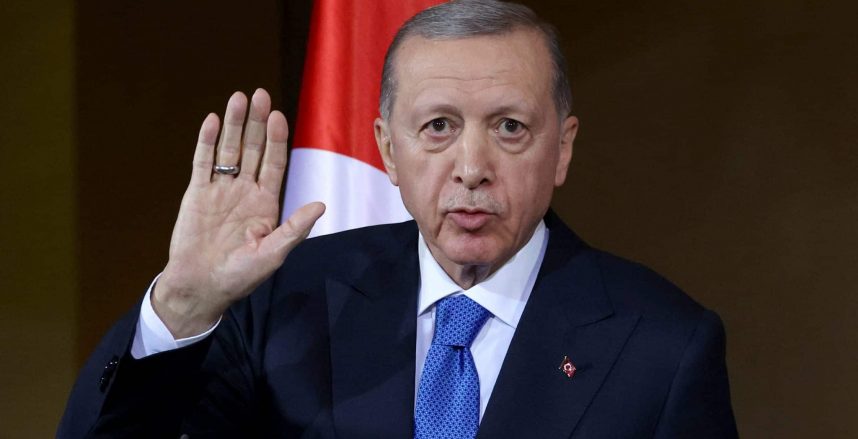
The use of court orders to block online content in Turkey skyrocketed last year, according to a newly-published report accusing authorities under President Erdogan of trying to cover up their wrongdoing.
According to Free Web Turkey’s Internet Censorship Report 2023, 5,881 of the 14,680 blocked news articles concerned corruption and other alleged wrongdoing by authorities. Of those, 5,150 were about specific public officials, 2,575 about individuals and organisations close to the AKP and 854 about Erdogan and his family. More than 380 were articles reporting on previously blocked content.
Ali Safa Korkut, the author of the report, said the authorities were effectively mounting a cover-up.
“During 23 years of rule by Erdogan’s Justice and Development Party, lawlessness has become widespread. They are openly violating people’s rights,” he told BIRN. “When the news spreads and makes noise, they use these bans to cover up their irregularities and corruption.”
“Courts decisions, bans, criminal complaints make it impossible for journalists to do their jobs. The news you wrote with a lot of effort and time is blocked. You do it again and it is blocked again.”
Court orders are just the start

One of the most frequently blocked news agencies in Turkey is the pro-Kurdish Mezopotamya Agency.
“Since our establishment in 2018, our website was blocked 38 times by court order,” the editor, Diren Yurtsever, told BIRN. “When our website is not blocked, we face court orders blocking our news articles.”
It does not stop there, however.
Every time a story is blocked, Yurtsever said she is summoned for questioning. “There are seven ongoing court investigations against me,” she told BIRN.
Most of the agency’s articles that are blocked concern the question of Kurdish minority rights in Turkey, corruption involving government-appointed local officials and crimes against women and children.
“A complaint by the Gendarmerie General Command is enough to block our website and start an investigation against on suspicion of being a member of a terrorist organisation,” Yurtsever said.
Other recent examples includes an unexplained decision this month by Turkey’s Information and Communication Technologies Authority, BTK, the national communications regulatory agency, to block access to Instagram. Then on August 7, citing the need to protect children, a Turkish court blocked access to the online gaming platform Roblox. The Turkish language services of Deutsche Welle and Voice of America remain inaccessible in Turkey, with authorities citing their failure to obtain new licences from the state.
Blocks hit revenues and hurt ‘collective memory’

Blocked content affects a media outlet’s online visibility and therefore its advertising revenue.
“Small independent media survive on ads; the more readers, the more advertising revenue,” said Korkut.
“These blocked news articles usually are very popular and widely read news. So when this news is deleted, both the earnings of that day and future earnings are lost. The more links and URLs deleted on Google, the more you fall behind. And when it is deleted, no profit can be made on social media platforms that make payments, such as YouTube and Twitter.”
This is corroborated by the case of Mezopotamya Agency.
“Constantly blocking content technically harms us,” said Yurtsever. “We see this decline the most on Facebook and TikTok. Our Facebook page is constantly being closed and people are not following our news page. In this regard, we see that censorship has a result.”
The ultimate aim, she said, is to manipulate the collective memory of the Turkish people.
“Even if the criminals leave or lose power, they do not want to leave behind a trace,” Yurtsever said, and warned of the knock-on effect.
“Targeting us sends a message to other journalists and the media, saying that if they do what we do, they will also be prosecuted and arrested,” Yurtsever told BIRN. “Unfortunately, there are outlets that had to accept this auto-censorship. But we are fighting to prevent this trace from being erased from the collective memory.”
Korkut agreed. The impact is far greater than a single blocked news article, he told BIRN.
“When a news item is blocked, not only is a link blocked but the freedom of the press, freedom of expression and the right to access information are also violated,” Korkut said. “Furthermore, when a news item is blocked, we turn a blind eye to the crimes of the people in the article and ignore the victims.”
Korkut said he saw no reason to expect any improvement soon. He noted a ruling by Turkey’s Constitutional Court in January declaring unconstitutional the BTK’s power to block access to online content. The ruling should enter into effect in October, but Korkut said the government will simply “enact an even worse law”.
“In a country where even Instagram is blocked, it is very easy for this government to block a media outlet that might hurt it.”